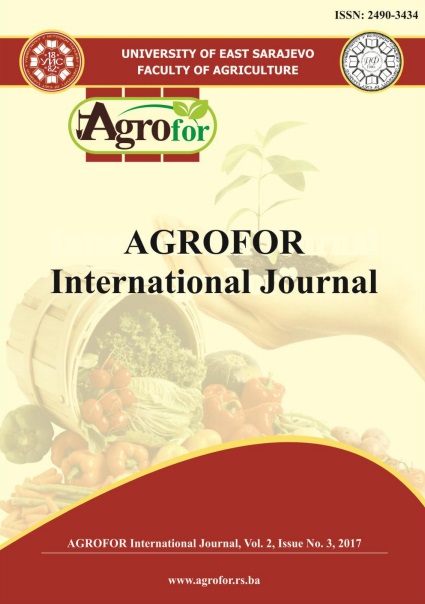TRADITIONAL CULTIVATION PRACTICES MAY EFFICIENTLY PREVENT THE VIRUS SPREAD IN SUSCEPTIBLE CROPS: A CASE STUDY OF TURNIP MOSAIC VIRUS IN UKRAINE
DOI:
https://doi.org/10.7251/AGRENG1703084TAbstract
Turnip mosaic virus (TuMV) is a member of the largest Potyviridae family of plant
viruses. For domesticated Brassica plants, TuMV is considered one of the most
damaging and economically important viruses. TuMV is mainly transmitted by
many aphid species non-persistently as well as mechanically from plant to plant.
TuMV probably occurs worldwide and has been found in both temperate and
subtropical regions of Africa, Asia, Europe, Oceania and North and South
America. In Europe, TuMV was reported from the UK, Spain, Italy, Greece,
Germany, The Netherlands, Czech Republic, Hungary, Bulgaria, Poland, and
Russia. Despite Ukraine geographical location and wide cultivation of different
Brassica crops for centuries, it has been only recently that the authors have
registered TuMV in this country. In this study, isolates of TuMV were collected in
Ukraine from naturally infected host plants, all from Brassicaceae family. For the
first time, TuMV was shown to be widespread in agricultural and urban regions in
Ukraine where it naturally infects crops, weeds and introduced species with
infection rate reaching 50%. Also, we show that urban locations and concomitant
weed plants are potent factors of virus epidemiology favoring extremely high virus
incidence level of 89% in susceptible hosts. Importantly, we underpin the
significance of trivial cultivation practices (crop rotation and eradication of
diseased plants) as preventive measures for the control of damaging pathogen of
brassicas, allowing for 3 times less TuMV incidence.

